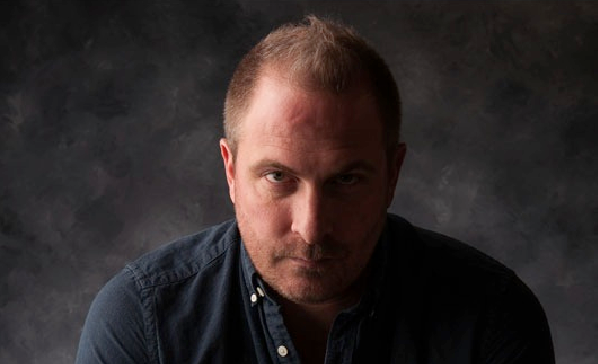Nicole Kidman isn’t an expert on The Bible, but she did help one.
While teaching a class at Pepperdine University, a student asked Robert Cargill if he would meet a friend interested in the course. She was concerned her friend would “be way too distracting” for the class.
He met the friend, Nicole Kidman, at her home throughout that semester. She asked questions, some of which helped lay the foundation for his book The Cities that Built the Bible.
“She would ask good questions and one of them was, ‘Where do I get the Bible from?’ ” Cargill said. “This book is that answer.”
At noon on May 15, Cargill, a University of Iowa assistant professor of classics and religious studies, will speak at First Presbyterian Church, 2071 Rochester. He will lecture on the development of the spirit and his book.
Seven hundred pages after Kidman’s questions, the first part of the book was finished. In the end, it had to be whittled down to around 300 pages, but Cargill was not bothered.
Raised in a Christian household, he has long been filled with the insatiable desire to know more.
“I was always interested in how things work,” he said. “I was pre-med; I wondered how the body works. I played baseball and wanted to know all the mechanics of how it works. So when I went to divinity school, I wanted to know how religion worked, how faith worked.”
While many peers in his divinity school were hoping to become preachers or missionaries, that wasn’t Cargill’s interest.
“I took Greek, and Hebrew, and archaeology,” he said. “I wanted to know the mechanics of how we got the Bible. What evidence do we have for things?”
Of particular interest to Cargill are the authors behind the work.
“[Some say] it came down from the mountains, some people say it was written by inspired men,” Cargill said. “In this tradition, God comes to them and they just write the book.”
However, many different cultures and authors contributed to the Bible. Researching those origin stories formed the foundations of *The Cities that Build the Bible*.
“The Phoenicians contributed the alphabet,” Cargill said. “We have the stories; we have the influences … I just wanted to tell the formation of the Bible from the point of views of the cities.”
One of the most memorable moments when writing the book was being able to visit the places he had only read about and studied.
“I would touch the Western Wall, I would walk into the Church of the Holy Sepulchre,” Cargil said. “[I would] walk through the streets of Nazareth … It makes the history come alive, and I think the same is true for your faith.”
For Cargill, giving this lecture is a way that he can help the bridge the faith communities in Iowa City. He is rebelling against the idea of church as a mundane service with repetitive songs, prayers, and feelings.
“That’s what I’m after, that I can bring something to the worship service that will be a little bit different that won’t frighten people. [It won’t] cause people to react in a defensive way but will say, ‘Huh, I hadn’t thought of it that way …’ ”
WORDS
Prairie Lights presents Robert Cargill
When: Noon May 15
Where: First Presbyterian Church, 2071 Rochester Ave.



